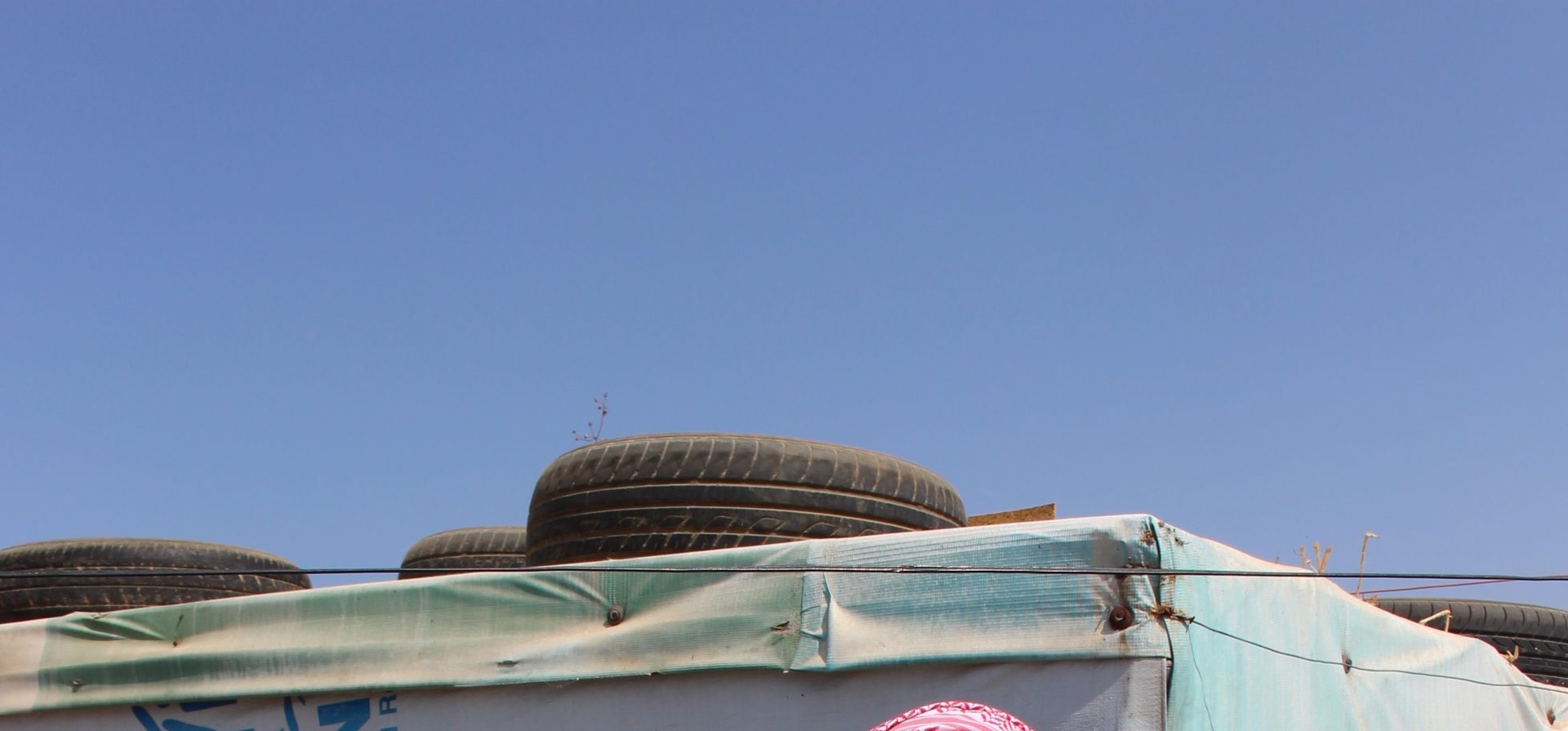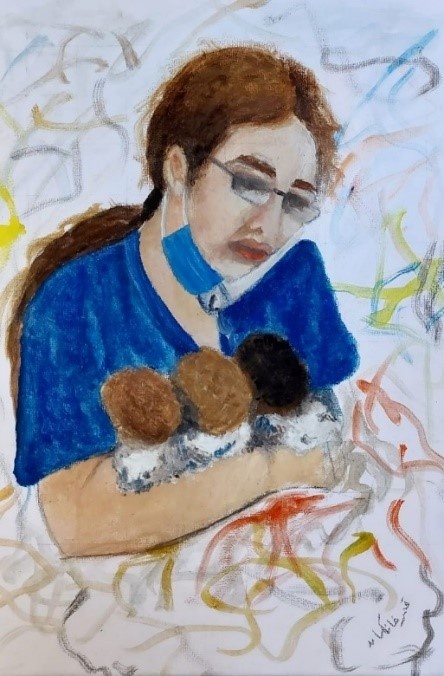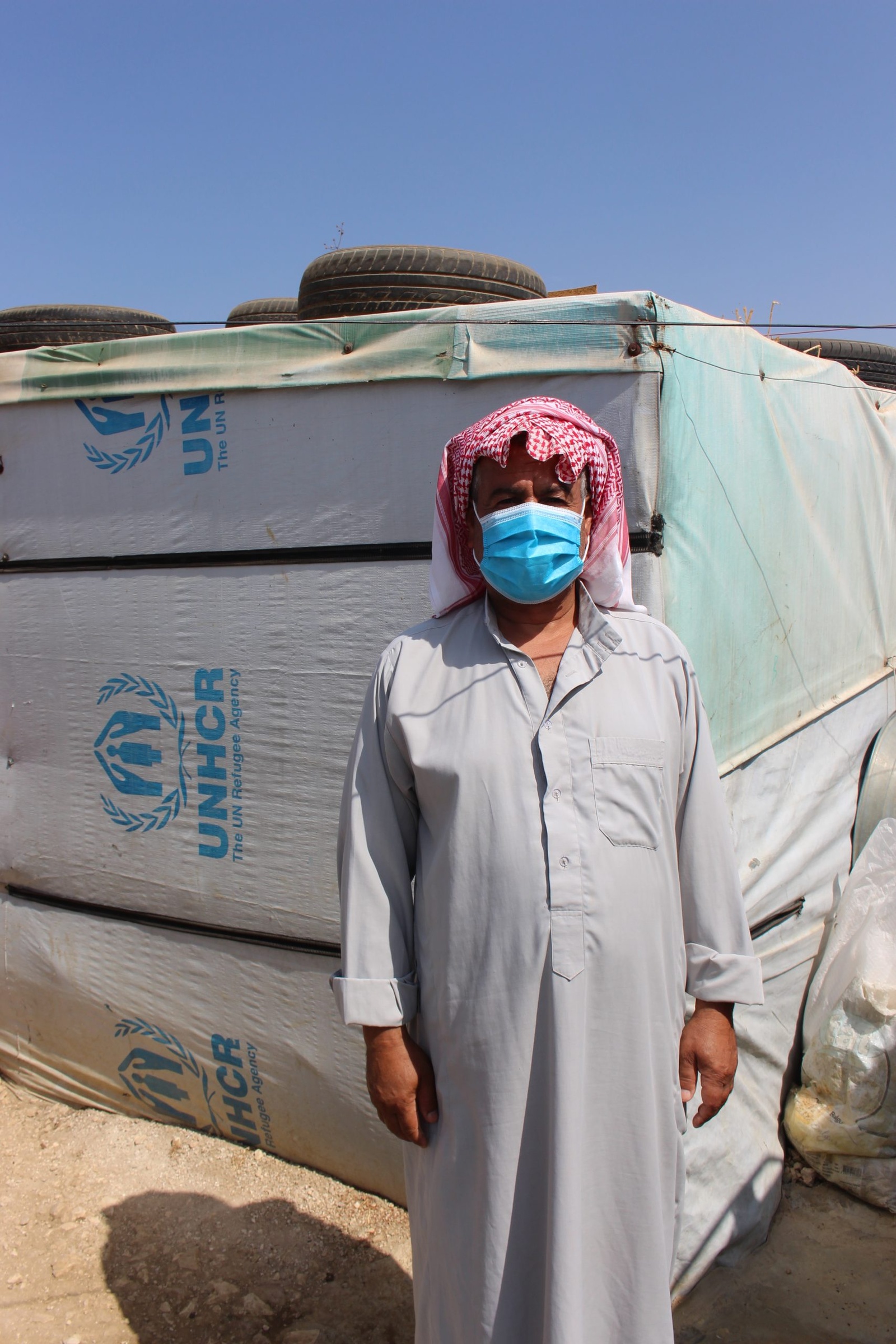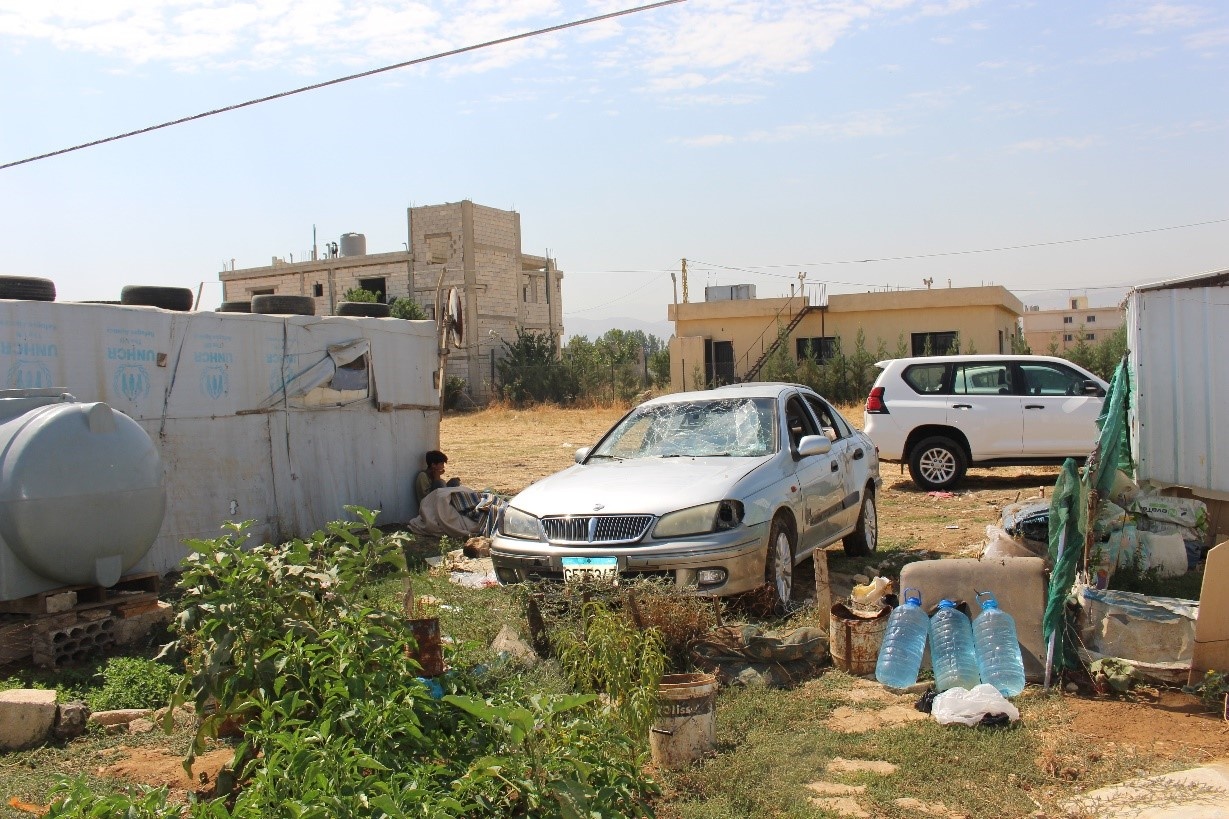Syrian Refugees Express Hope and Solidarity for Lebanese Following the Beirut Blast

Syrian Refugees Express Hope and Solidarity for Lebanese Following the Beirut Blast
Following the catastrophic Beirut blast on August 4, the city’s residents are still grappling with its devastating aftermath. The blast, which claimed around 200 lives, injured over 6,500 people and damaged around 200,000 households, has left Beirut’s inhabitants in a state of limbo. Many of those who were lucky enough to have survived the deadly explosion today find themselves with physical impairments, facing homelessness, out of work and with little possessions.
Izzo Hammoudi, a 55-year-old father of nine, is a Syrian refugee who brought his family to Lebanon in 2013 to escape the war in Syria. While his family lives in an informal settlement in the Bekaa, he rented a small apartment in Karantina close to the port where he worked as a truck driver up until August 4 when he was caught up in the blast.
“I had finished my work shift and was resting at home when the walls came crashing down on me,” said Izzo, who was carried to the nearest operating clinic by people who found him amidst the rubble. “When I woke up from my coma a day later at the clinic, I was told I had sustained an intense head injury and have had more than 200 stitches in my back alone,” he added.
Izzo considered himself very lucky to have had a job – despite its meager pay – at a time when the entire country’s economy is crippled by a financial crisis and an ongoing pandemic. His daily worries, shared by all other heads of household, is to be able to provide for his children. Even with over 200 stitches in his body, Izzo remains eager to work and improve his living situation.
“I just want to get back on my feet. My suffering is not greater than that of my fellow Lebanese brothers and sisters in these tumultuous times,” he continued. “Be it the effect of the blast or the economic crisis, we are all sharing the same pain.”
A Show of Solidarity
Many other Syrian refugees were not as lucky as Izzo, losing their lives, those of their loved ones and enduring greater injuries. Despite that, many refugees have rushed to help in Beirut following the blast. They came out to assist in any way they could, from removing rubble and sweeping dusty streets to hosting Lebanese in their apartments and distributing food. “We are standing together hand in hand to help lift the dusty cloud over Beirut,” said Mohammed Haj Khamees, a Syrian Refugee.
Others expressed their love for Lebanon through art. Amar Khankan drew what she described to be a very touching moment for her: an image of a nurse cradling three newborn babies at a Beirut maternity ward ripped apart by the blast. “To me, the heroic nurse symbolizes Beirut rushing to embrace the vulnerable in their times of need,” explained Amar.

A drawing by Syrian refugee Amar Khankan captures what she described to be a very touching moment for her during the Beirut explosion. © Amar Khankan
Standing with Lebanon
UNHCR activated its emergency response shortly after the blast to support those most affected by the blast, Lebanese, refugees and other populations. A total of US$35 million was mobilized for the hardest-hit and most vulnerable households in Beirut, of which US$32.5 million is for shelter interventions and housing repairs, and US$ 2.5 million for protection activities and psychosocial support to help overcome the trauma and deal with the feelings of loss of loved ones.
Since the war in Syria broke out over nine years ago, hundreds of thousands of Syrians sought refuge in neighboring Lebanon. Since then, living conditions in the host country have deteriorated as a result of strained resources and an economic crisis that has given rise to the devaluation of the local currency and hyperinflation. The recent Beirut blast has added yet another level of strain on an already vulnerable population.
Izzo, however, remains hopeful. “We will get through these difficult times, God willing, and so will the Lebanese.”



